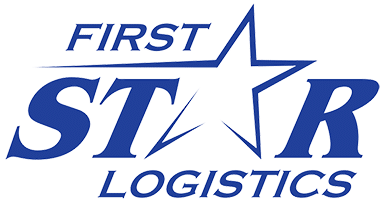As we fully immerse ourselves into 2024, the freight logistics landscape evolves, shaped by fluctuating markets and advancing technologies. Navigating this dynamic terrain demands strategic foresight and agility. Here are some key freight planning strategies to steer your business toward resilience and prosperity in the year ahead:
1. Leverage AI
In the era of rapidly evolving technology, embracing Artificial Intelligence (AI) is not just a luxury but a necessity for success in the freight and logistics industry. AI allows carriers, shippers, agents, and brokers to gain valuable insights into market trends, customer preferences, and operational inefficiencies.
By analyzing vast datasets spanning everything from historical shipping patterns to real-time traffic updates, companies can optimize their shipping routes, predict demand fluctuations, and make informed decisions about capacity allocation and pricing strategies.
Moreover, AI-powered automation tools can transform routine tasks such as scheduling, documentation, and communication, streamlining operations, reducing errors, improving security, and freeing up valuable resources for other strategic activities.
Embracing technology and leveraging AI isn’t just about staying competitive; it’s about future-proofing your business and unlocking new opportunities for growth and innovation in an increasingly intelligent landscape.
2. Build Strategic Partnerships
In the complex web of the freight industry, collaboration is the linchpin of success. By forging strong partnerships with carriers, brokers, and other stakeholders, shippers can access a border pool of capacity, negotiate competitive rates, and navigate market fluctuations easily and confidently.
Leveraging the expertise and network of reputable freight brokers can provide shippers with invaluable support in securing last-minute capacity, navigating regulatory challenges, and optimizing supply chain efficiency.
Similarly, carriers and brokers can benefit from robust connections to provide quality services to shippers. For all parties involved, clear communication, consistent business practices, and well-defined contractual agreements are the hallmarks of successful partnerships, fostering trust and reliability in an inherently volatile market.
In an industry where success is often measured by the strength of connections, investing in collaborative relationships is not just prudent – it’s essential for long-term growth and stability.
3. Focus on Agility and Flexibility
Agility is vital for success in a landscape characterized by uncertainty and volatility. Shippers, carriers, and brokers must remain nimble and adaptable, ready to pivot in response to changing market conditions and customer demands.
For shippers, diversifying shipping lanes and carrier partnerships can lower risk and increase resilience against capacity shortages and geopolitical upheavals. While contract rates are crucial for long-term stability, shippers must remember that they can also use spot rates to capitalize on cost savings during slack periods or access capacity in tight markets. Moreover, embracing intermodal shipping can provide additional flexibility and cost optimization opportunities, particularly for long-haul shipments.
By prioritizing agility and flexibility in freight planning strategies, companies can position themselves to thrive in an ever-changing landscape and seize opportunities for growth and expansion.
4. Prioritize Sustainability
This era is also marked by increasing environmental awareness and regulatory standards, making sustainability a key priority for businesses across all industries, especially freight and logistics. By optimizing routes, selecting fuel-efficient vehicles, and embracing eco-friendly practices, carriers and shippers can reduce their carbon footprint and minimize their environmental impact.
Beyond environmental benefits, prioritizing sustainability can also yield tangible business advantages such as attracting environmentally-conscious consumers and partners, enhancing brand reputation, improving communities and economies, and mitigating risks associated with supply chain instability.
By integrating sustainability into freight planning strategies, companies can contribute to a healthier planet and drive long-term business success and resilience.
5. Stay Informed
Now more than ever, knowledge is power. Staying on top of market trends, regulatory developments, industry innovations, and other market forces is essential for shippers, carriers, and brokers seeking to maintain a competitive edge and seize emerging opportunities.
By monitoring market fluctuations, fuel price trends, and geopolitical developments, companies can anticipate potential challenges and proactively adjust their strategies to mitigate risk and capitalize on key opportunities for profit. Networking with industry peers, participating in forums, engaging with experts, and leveraging AI-powered tools can provide valuable insights, best practices, and actionable intelligence to inform strategic decision-making and drive business growth.
Partner with First Star Logistics
Navigating the complexities of the freight industry in 2024 requires a multifaceted approach that blends technological innovation, collaborative partnerships, agility, sustainability, and informed decision-making. By embracing these freight planning strategies and adapting them to your unique business needs and challenges, you can position your company for success in the year ahead and beyond.
For all things freight, First Star Logistics is here for you. Whether you are looking to embark on a new career, advance in your profession, or find expert shipping solutions, First Star Logistics can help. With over 60 years of experience as an asset-based global logistics provider, we have the expertise to serve our customers and employees today and every day in the future.
To work with First Star Logistics, contact us today!



